How to Avoid Tick Bites When Hiking – 7 Easy Strategies
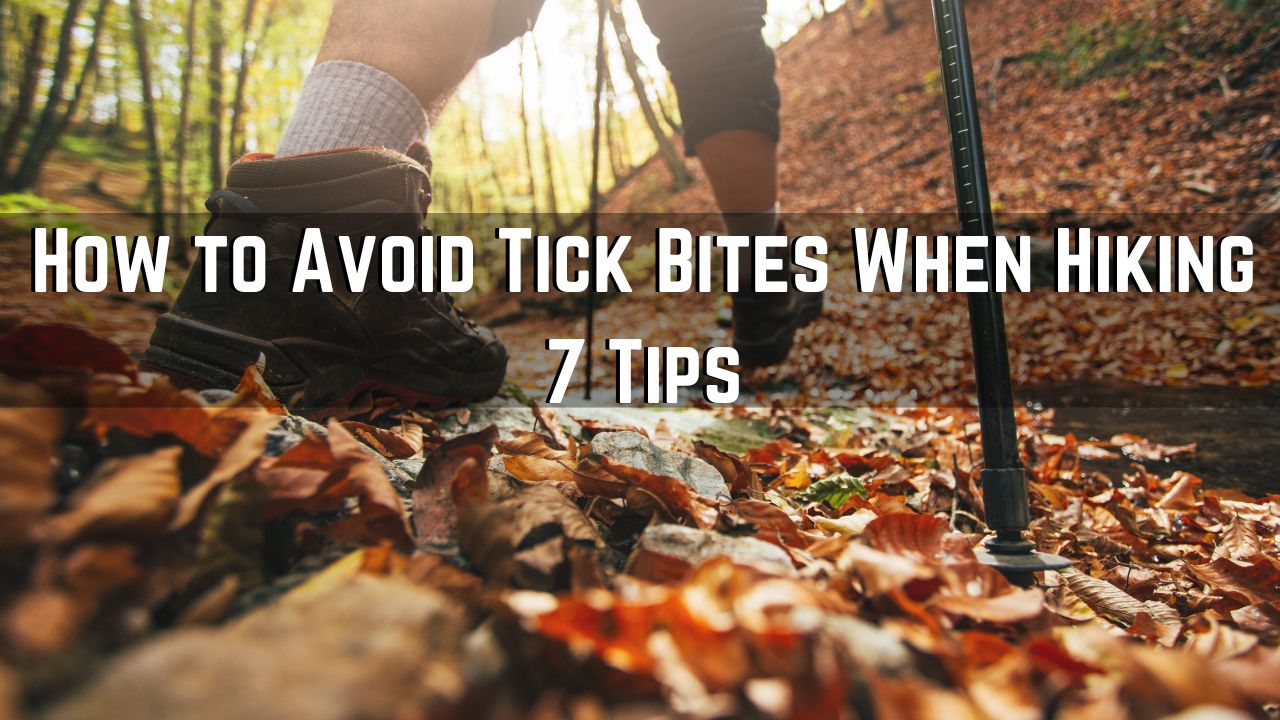
In this article I want to share with you smart and simple ways on how to avoid tick bites when hiking, something I unfortunately have a lot of experience with.
When I was 14 years old, I got bitten by a tick and contracted lyme disease after camping out in upstate New York for a few nights. While I won’t go into the details of the “unpleasant” experiences I had, the good news is that I am OK now and continuing my hiking and outdoor adventures, but I still run into a lot of people (including friends) who are totally unprepared when they go into areas with ticks and they are just taking too many risks without even realizing it.
So before I share these simple methods, let me just share some info about lyme disease in case you are unfamiliar with it:
4 important things to know about tick bites:
1) Lyme disease is known to come from them:
Not all ticks carry it but you never want to take that risk anyway.
2) Ticks are mostly located in the northeastern United States (here’s a map):
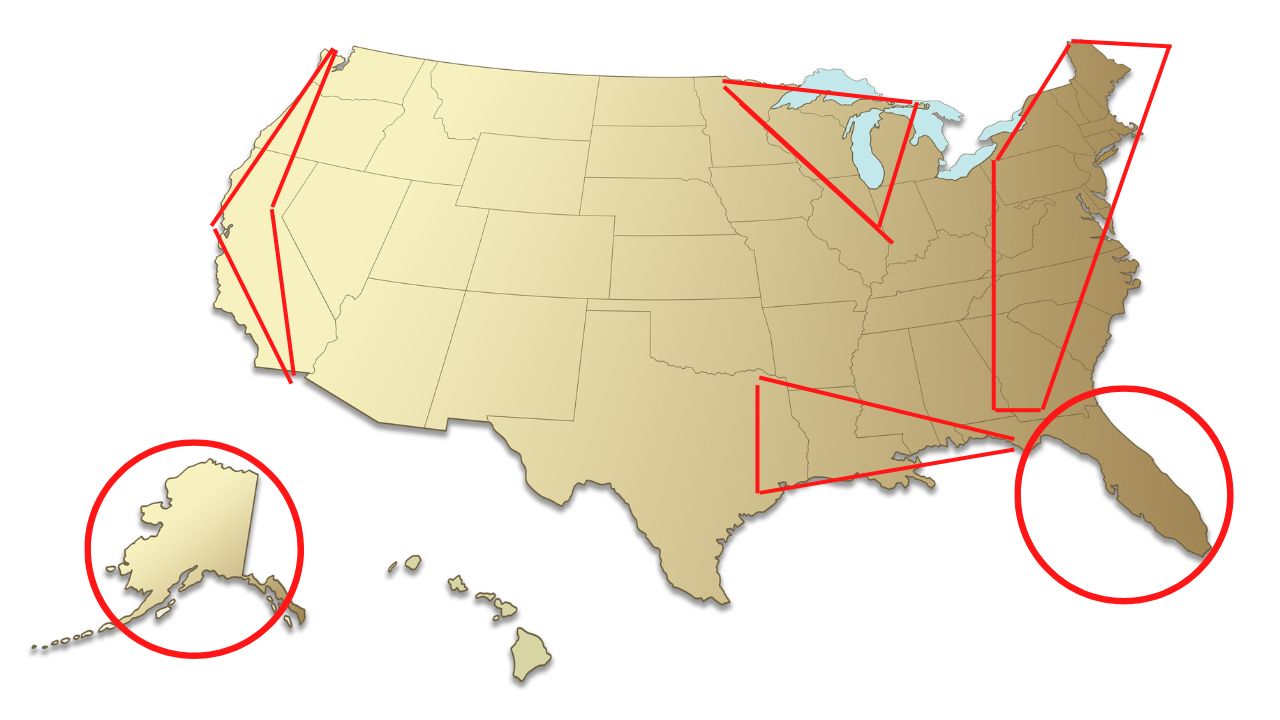
States like New York, the New England area is where they are most common. There are other regions/states like the Upper Peninsula of Michigan, Minnesota where they are also common. West end of the states, you MAY find them in the Pacific Northwest but not as often as in the east.
Either way, if you are heading out for a hike or camping, check if ticks are in the area and very often you will see signs warning about them on your hikes (which is common for example in the Catskill Mountains where I hike). For Alaska, they have ticks too. I have included a tick map where the red areas are where they are most common. Any area not red doesn’t mean ticks aren’t there, it just means there’s less of them in the area.
3) You’re always going to want to check your body and clothes for ticks:
Make sure you do it during and after your hikes. If you’re with friends, ask them to scan you (and vice versa).
4) Usually ticks are most dangerous during warmer seasons:
If you’re hiking during the spring and summer, be extra careful about ticks then.
Now here’s how to avoid tick bites when hiking (the 5 methods):
- Wear clothing that covers most of your skin.
- Use tick spray.
- Avoid bushwhacking when hiking.
- Avoid camping if possible.
- Stay on trails.
- Hike when it’s colder.
- Avoid animals and check yours frequently when hiking.
Most of these are easy to implement, but I want to explain why each one is super important for avoiding tick bites and subsequently lyme disease which is your first and most important way of protecting yourself. And of course if you believe you were bitten by a tick, play it safe and visit a doctor.
Wear clothing that covers most of your skin:
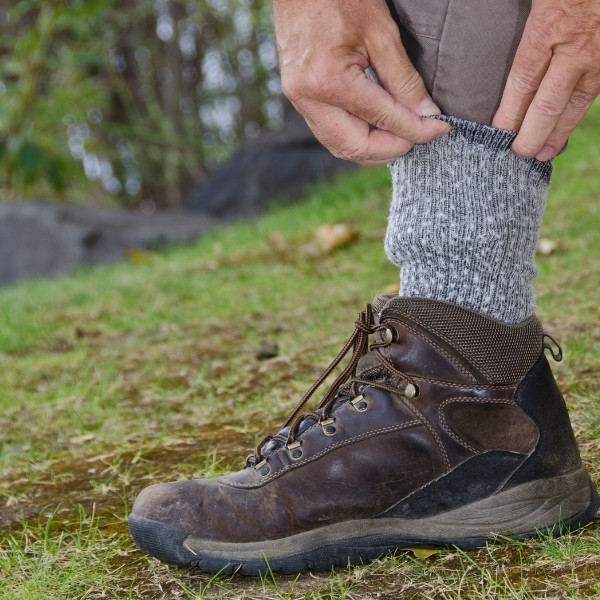
If a tick can’t bite you because your skin is covered by clothes, you have less chances of getting lyme disease period. When I go hiking, in most cases, I will wear clothing that covers everything but my hands and face. Most of the time when I see people hiking, they are wearing shorts and shirts and in some cases even things like crocs for hiking, exposing their legs, feet and hands to ticks and other bugs in the area.
I totally get that when you go hiking, and especially when it’s hot, you’ll want to wear less to stay cooler, but there is good clothing available out there where you can protect your skin and stay cool. Rashguards and leggings are a good example of this. I typically hike with under armor pants that feel great in any environment. The less skin being exposed, the more safe you are from tick bites.
Note the thumbnail for this article. It’s a guy walking around during fall foliage, and while he’s wearing full clothing, the area above his socks is exposed. I would strongly advise that person to cover that area up if possible.
Use tick spray (on yourself or dogs you’re hiking with):
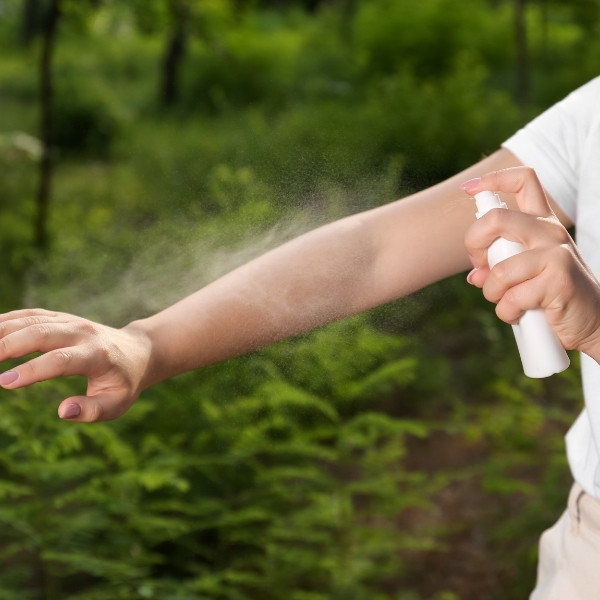
It can help a lot, but just like with any other bug spray it’s not guaranteed. However, I would not prioritize tick spray as being your best protection against them and do something like wear less clothing thinking you’ll be completely safe. Tick spray HELPS, but wearing fuller clothing when hiking/camping is something I would strongly consider being just as important if not more.
- Here is a good tick spray for people.
- If you’re hiking with animals, there is also tick spray for them. Here is a popular one.
Avoid bushwhacking when hiking or camping:
Bushwhacking is a term for going into deeper woods. A lot of people who get lost in the woods or just go exploring often (or to the bathroom) go out, make their way through bushes, thick grass and often don’t realize that this is exactly where most ticks can live. They may not even realize they got bitten either.
The point is if you can, avoid going into deep bush or bushwhacking in general. There’s plenty of open/easy trails out there (see how to find easy hikes near me) where it’s good, but if you have no choice but to go into deeper woods, at least wear more clothing to protect yourself just in case and make sure to check yourself when you exit out of them. And in general, here’s hiking tips for beginners to keep in mind too that will help as well.
Avoid camping if possible:
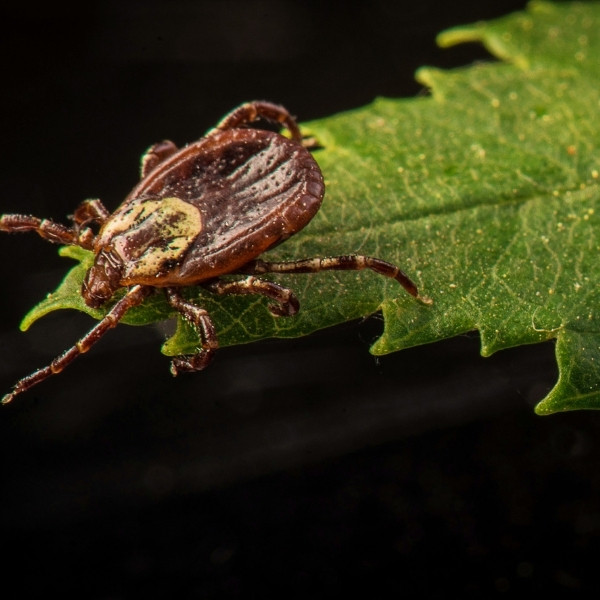
If there was ever a time I had a passion for camping, it vanished after I got lyme disease which occurred because of that. But there’s a lot of people who still do it and I totally understand. Just know the risks and take precautions. When you go camping, you’re obviously going to be in situations where you won’t be fully clothed or you need to go into the woods to find something or use the bathroom.
That just makes it more likely that you may run into a tick or even if it crawls into your tent. These things are extremely elusive and hard to see so just be careful. Check the tent, make sure that you check your clothes and that things are scattered everywhere, making it easy for them to hide and for you to note find them.
Stay on trails when hiking:
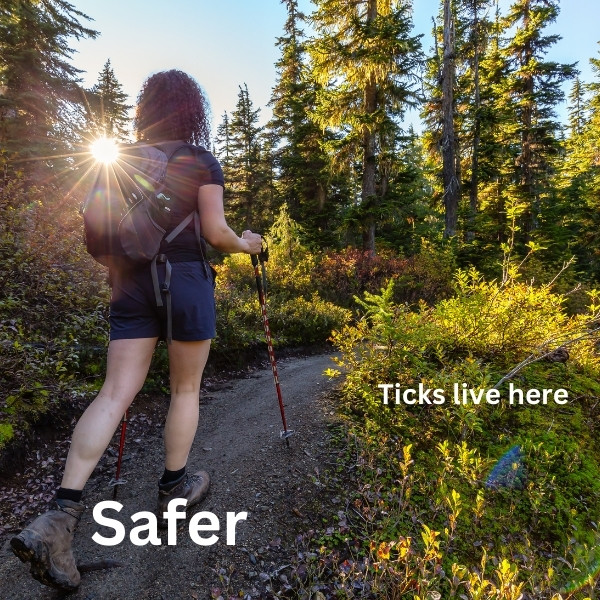
Trails are often way easier to navigate on in general and they are more open (outside bushy areas where ticks live). A lot of people get off trail for many reasons and that often involves going into the woods. I highly recommend always staying on a trail and if possible choosing easier ones that are more open. More open trails means less bushy areas to encounter ticks. Now this doesn’t fully negate the risk of running into ticks, but at least you are way safer. Just make sure you know how to not get lost in the woods, otherwise this risk increases.
Hike when it’s cooler:
As I said above, ticks tend to thrive more during warmer seasons and if you can select when you decide to go hiking, then fall or cooler times would be better. I honestly dislike hiking in the summer because of how humid it gets in the northeast and prefer hiking before spring hits or early fall, but if you find yourself in a situation where hiking during warm seasons is unavoidable, just rely on the above tips for wearing fuller clothing (light) and using tick spray.
Avoid wild animals and check your dog frequently:
Deer are a common target for ticks and if you hike with a dog, they are too. Generally speaking, we all know to not do things like feed wildlife and come close to them and usually that will be the case (most deer will run away from you), but there are people who they aren’t scared of and will get close to and if meet one and they get close, there’s a chance they are carrying ticks, so check yourself afterwards just in case. Same thing with your dog. If you’re hiking with them, check them and yourself from time to time.
Other quick questions about avoiding tick bites:
How do you deal with tick bites while hiking?
There are several ways to deal with tick bites including using spray, staying out of wooded areas where they are common and checking your body from time to time to check for them and bites.
These 7 tips should help in a lot of ways and it’s surprising how many people don’t know about them and as a result are at huge risk of getting bit by them. But now you know the most basic ways to avoid tick bites, use them and if you have your own suggestions, I would love to hear what also works.

This is good read, I have always been afraid of ticks and heard about them since I was a kid. My grandparents lived in the country and I was told the ticks are bad. As a kid I didn’t think much about it and didn’t really worry. When I got older I learned about lyme disease and then was scared to go outside. I would also always use tea tree shampoo to make myself less desirable for them. I also got lice when I was a kid and figured I didn’t want any bugs on me.
When I was a teenager I started working with horses. I noticed that my horse had an abscess on his jaw, naturally I panicked and didn’t know what was going on. I called the vet and the vet didn’t even know what was happening. I was cleaning the area one day a realized there was something in it. My horse had a high sensitivity to ticks and other insect bites. I pulled the tick out and he did get better and the swelling went down.
Yeah ticks are very scary Reggie, not just for us but as you already found out horses and other animals too. I hope the horse is OK now but either way you should just be careful when you hike outside and that’s not really difficult to do.
I’m sorry to hear that you got Lyme from a tick bite many years ago. Thank goodness you are fine now! I wish I’d read your article sooner, as my husband just recently had a tick bite that we didn’t discover for many days. We are in a rural part of the northeast, and we always see the warnings about ticks when we visit the vet with our dog. But I hadn’t given the severity of this much consideration until that recent bite. That was scary removing the tick but at least for now, it seems there are no lyme symptoms. Since this experience, we’ve realized the need to keep covered up and use a tick spray when outdoors. I can’t even imagine going camping now knowing all this! We will definitely keep your suggestions in mind for the future. Thanks for sharing these tips.
I hope your husband is OK and that you’re careful about it in the future Lee (also for your dog too). In my case, I didn’t see the issue show up until several months after I got bitten.